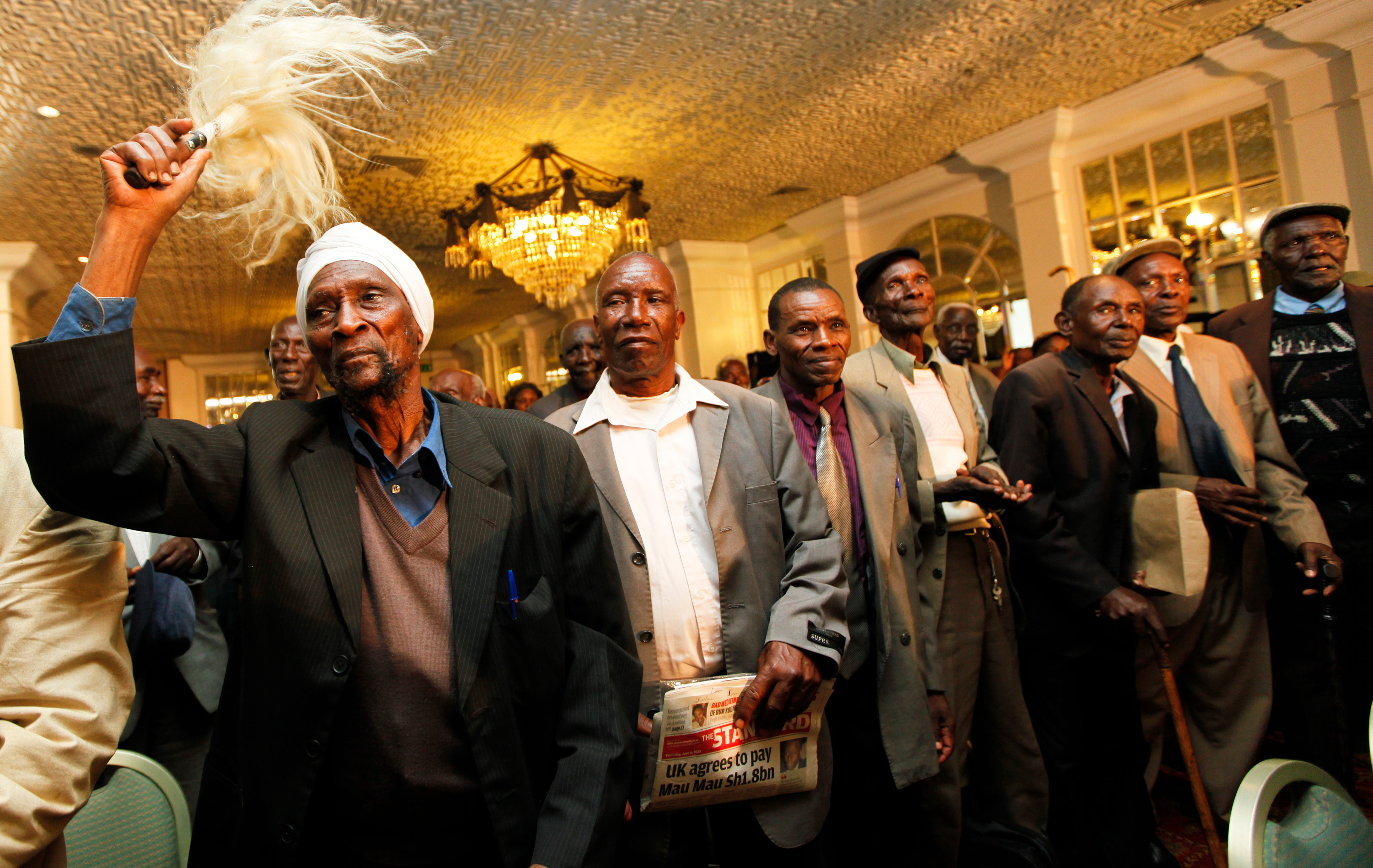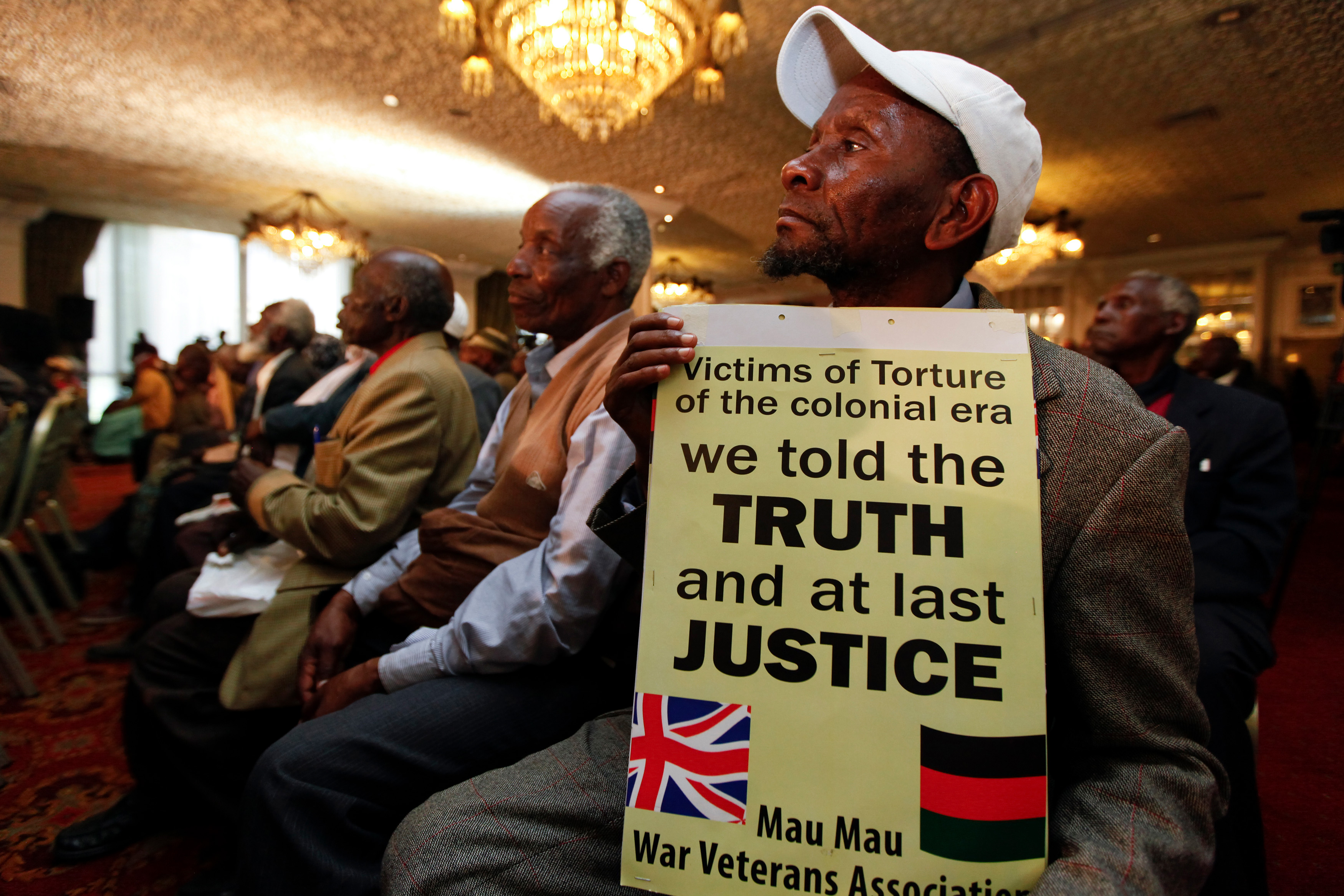It is fairly well known that the lives of hundreds of thousands of Kenyans were affected by terrible acts of violence under the British colonial administration. The British government and King Charles have acknowledged it, and some victims of violence have taken the British government to court for these crimes.
Less known is how much the British imperialist government tried to cover up these violations.
My research reveals how harsh British detention camps in Kenya were, and the extremes to which the colonialists went to conceal information about this.
Much of this violence happened during the state of emergency, which lasted between 20 October 1952 and 12 January 1960.
As militant nationalism, including the Mau Mau rebellion, grew against the colonial state, a state of emergency was declared in 1952. It introduced a raft of extraordinary regulations, akin to wartime powers.
The regulations paved the way for mass arrests, detention without trial, excess capital punishment, summary executions, evictions, fines and the forced resettlement of entire villages.
From 1953 to 1960, between 70,000 and 150,000 Mau Mau suspects were detained without trial in an archipelago of camps. Conditions in the camps were dire and British colonials and loyalist warders meted out violence with impunity.
The Kenya Human Rights Commission estimates that more than 100,000 Kenyans were killed, tortured and maimed during this time.
Using declassified colonial files and government papers, my research reveals the pressure that was exerted by the Colonial Office in London to conceal evidence of violence against detainees. It shows how a highly sophisticated propaganda machine controlled the public narrative of violent incidents.
It was a form of state-sanctioned amnesia that hid the victims’ perspectives. It officially depicted the British colonials as rational actors doing a difficult job under the circumstances.
Highlighting this colonial story enriches the present and sheds new light on these events.
Violence in detention
I identified flash-points of violence which revealed the brutality of the colonial detention regime.
One of these, known as screening, occurred when an entire village or community was confined and interrogated about their political allegiances. Many were subsequently detained.
To progress through the camp complex to eventual release, detainees (none of whom had been charged with or convicted of any crime) had to confess to their Mau Mau activities.
Read more in Daily Maverick: Justice and hypocrisy: Preachy Britain ignores its Kenyan crimes
Camp staff achieved this by using systematic brutality that had been sanctioned by the colonial administration.
One example was the “dilution” technique. This occurred when a small number of non-cooperating detainees were housed with cooperating detainees who — through a concerted psychological and physical attack — would push them to accept the rehabilitation regime and confess to taking the Mau Mau oath.
A variation of this, the Mwea procedure, used physical force to break “hardcore” detainees when they first arrived at the detention camp. Incoming detainees would be abused by prison staff and cooperating detainees until they submitted.
Another form of sanctioned violence was the use of “overpowering force”. This was supposed to be executed by European rehabilitation and prison staff in the form of on-the-spot punishment of no more than 12 strokes using a regulation cane.
From 1953, a policy to compel detainees to engage in work was introduced and disobedience was redefined as a major offence. So when detainees refused to work, they were subject to corporal punishment.
The scene was therefore set for the sanctioned use of violence against detainees. And if people were injured or killed in defiance of a legal order, those consequences could more easily be justified by camp authorities.
These methods of corporal punishment resulted in many injuries and deaths because camp staff regularly exceeded the punishment specified in emergency ordinances.
For instance, on 3 March 1959 at Hola detention camp in the north province, 11 detainees were killed and many more injured after being set upon by guards for “refusing to work”.
The initial official account blamed the deaths on contaminated water. However, the local inquest magistrate revealed the deaths “were due to shock and haemorrhage due to multiple bruising caused by violence”. Still, no one was ever prosecuted for these killings.
 Veterans of Mau Mau, Kenya's independence struggle rebellion movement, sing and dance in celebration during a press conference attended by the British High Commissioner Christian Turner at a hotel in Nairobi, Kenya, on 6 June 2013. (Photo: EPA/Dai Kurokawa)
Veterans of Mau Mau, Kenya's independence struggle rebellion movement, sing and dance in celebration during a press conference attended by the British High Commissioner Christian Turner at a hotel in Nairobi, Kenya, on 6 June 2013. (Photo: EPA/Dai Kurokawa)
Memory and history
The history that is remembered is no accident. Writing to the governor and the colonial secretary in 1953, Kenya’s attorney general advised, “If we are going to sin, we must sin quietly”. Thus, a version of British imperialism was projected that relied upon concealment of harsh facts.
The violent architecture of the camps was hidden behind complicated bureaucratic language that stripped away its real meaning.
The British public was spun a narrative by the colonial government about the “rehabilitative” nature of the camps — a way to convert people away from Mau Mau allegiance.
In addition to spin, there was a deliberate attempt to suppress information. I was able to pinpoint significant Colonial Office directives from the late 1950s, which I argue were central to official denial and amnesia.
As British colonial territories were inching toward independence in the mid-20th century, the government in Whitehall redoubled its efforts to bury any evidence that implicated its colonial officials in violations that occurred in territories under British administration.
All top-secret classified materials were rapidly centralised in executive offices in Kenya and marked for “European eyes only”.
Certain colonial files were given a particular classification in a “Watch” series prior to Kenyan independence in 1963. This included “all papers which might be interpreted as showing racial discrimination against Africans on the part of the Government”.
The files were then either destroyed or removed to the UK in the 1960s. We know about the classification directives and destruction mandates because a paper trail covering those particular processes survived.
It is clear from these directives that evidence of serious human rights abuses would be destroyed in these document purges. Documents deemed to be safe were transferred to the new independent government.
All of these acts meant that the colonial portrayal of the Mau Mau uprising as irrational could be legitimised.
Selectivity over what could be mentioned was a successful colonial strategy, with resonance in how British colonial history is viewed today.
Apology and reparations
Those who continue to benefit from Britain’s historical violence are insensitive or unresponsive to the calls for acknowledgement, apology and reparations.
Public statements by King Charles and former British foreign secretary William Hague recognise that Kenyans were subjected to torture and ill-treatment at the hands of the colonial administration, but they fall short of a full apology.
There will be difficulty in examining and addressing historical harms. But my research reveals a need to reconcile the colonial narratives with historical facts. This holds the potential to foster genuine compassion and justice. DM
First published by The Conversation.
Aoife Duffy is a Senior Lecturer at University of Essex.




 Veterans of Mau Mau, Kenya's independence struggle rebellion movement, sing and dance in celebration during a press conference attended by the British High Commissioner Christian Turner at a hotel in Nairobi, Kenya, on 6 June 2013. (Photo: EPA/Dai Kurokawa)
Veterans of Mau Mau, Kenya's independence struggle rebellion movement, sing and dance in celebration during a press conference attended by the British High Commissioner Christian Turner at a hotel in Nairobi, Kenya, on 6 June 2013. (Photo: EPA/Dai Kurokawa)